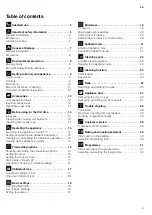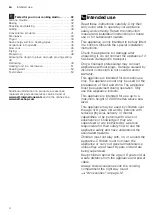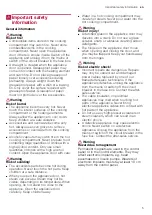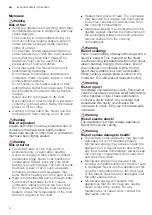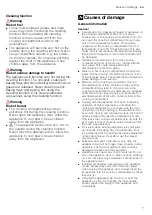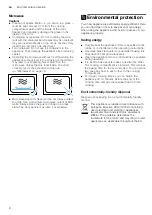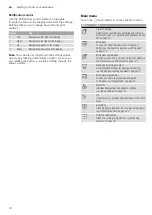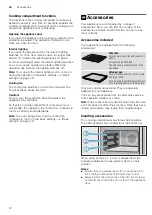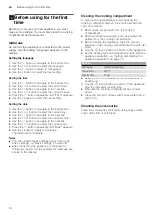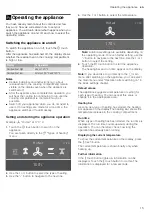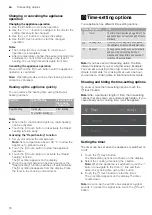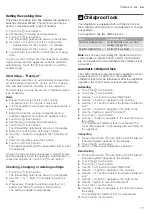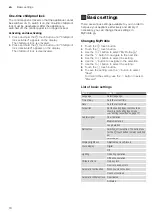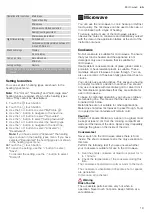
en
Environmental protection
8
Microwave
Caution!
■
Creation of sparks: Metal – e.g. a spoon in a glass –
must be kept at least 2 cm from the cooking
compartment walls and the inside of the door.
Sparks can irreparably damage the glass on the
inside of the door.
■
Combining accessories: Do not combine the wire
rack with the universal pan. Sparks may be created if
they are inserted directly on top of one another. Only
insert them into their own shelf level.
■
Foil containers: Do not use foil containers in the
appliance. They damage the appliance by producing
sparks.
■
Operating the microwave without food: Operating the
appliance without food in the cooking compartment
may lead to overloading. Never switch on the
microwave unless there is food inside. The short
crockery test is the exception to this rule.
■
Microwave popcorn: Never set the microwave output
too high. Use a maximum microwave output of 600
watts. Always place the popcorn bag on a glass
plate. The door panels may jump if overloaded.
7
Environmental protection
Environmen
tal prote
ction
Your new appliance is particularly energy-efficient. Here
you can find tips on how to save even more energy
when using the appliance, and how to dispose of your
appliance properly.
Saving energy
■
Only preheat the appliance if this is specified in the
recipe or in the tables in the operating instructions.
■
Use dark, black lacquered or enamelled baking tins.
They absorb heat particularly well.
■
Open the appliance door as infrequently as possible
during operation.
■
It is best to bake several cakes one after the other.
The cooking compartment is still warm. This reduces
the baking time for the second cake. You can place
two cake tins next to each other in the cooking
compartment.
■
For longer cooking times, you can switch the
appliance off 10 minutes before the end of the
cooking time and use the residual heat to finish
cooking.
Environmentally-friendly disposal
Dispose of packaging in an environmentally-friendly
manner.
This appliance is labelled in accordance with
European Directive 2012/19/EU concerning
used electrical and electronic appliances
(waste electrical and electronic equipment -
WEEE). The guideline determines the
framework for the return and recycling of used
appliances as applicable throughout the EU.



